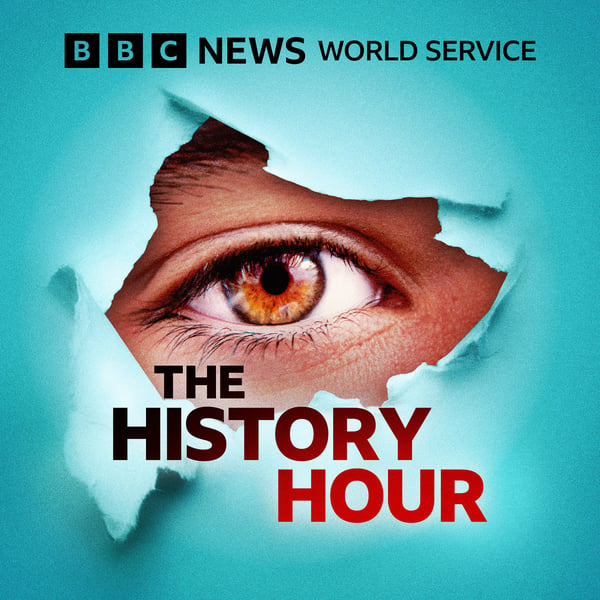Nagasaki bomb and Brazil’s biggest bank heist
The History Hour
BBC
4.4 • 879 Ratings
🗓️ 9 August 2025
⏱️ 51 minutes
🧾️ Download transcript
Summary
Max Pearson presents a collection of the week’s Witness History interviews from the BBC World Service. Our guest is Simone Turchetti, Professor of the History of Science and Technology, at The University of Manchester in the UK.
It's 80 years since the US dropped atomic bombs on Hiroshima and Nagasaki, forcing Japan to surrender at the end of the Second World War. We hear from a British prisoner of war who was in Nagasaki at the time.
Then, the son of musician Dmitri Shostakovich tells of his famous father’s confrontation with Stalin in the 1930s.
Also, the story of a man who survived an 8.6 magnitude earthquake that shook the Himalayan mountains in 1950.
Plus, Singapore's tense and tearful 1965 separation from the Federation of Malaysia and the detective who tracked down the gang responsible for Brazil's biggest bank heist.
Contributors: Simone Turchetti - Professor of the History of Science and Technology, at The University of Manchester. Maxim Shostakovich – son of musician Dmitri Shostakovich Manjeet Kaur- remembering Singapore independence in 1965. Antonio Celso Dos Santos – detective in Brazil Plus, archive recording of Geoff Sherring, a British prisoner of war in Nagasaki and Frank Kingdon-Ward who survived an earthquake that shook the Himalayan mountains in 1950.
(Photo: Nuclear explosion over Nagasaki. Credit: Pictures from History/Universal Images Group via Getty Images)
Transcript
Click on a timestamp to play from that location
| 0:00.0 | Hello and welcome to The History Hour from the BBC World Service with me, Max Pearson, |
| 0:10.6 | the past brought to life by those who were there. This week, a dramatic account of the powerful |
| 0:15.9 | 1950 earthquake that shook the Himalayan mountains. Then the ground beneath us seemed to sag. |
| 0:23.3 | I felt as though we were lying on a pie crust, |
| 0:25.9 | against which a steam hammer was drumming. |
| 0:28.5 | Also from 1965, the moment Singapore announced it had left the Federation of Malaysia |
| 0:33.8 | and become an independent sovereign state. |
| 0:36.4 | And the son of Dmitri Shostakovich on his father's famous confrontation with Stalin in the |
| 0:42.1 | 1930s. |
| 0:43.2 | His response to being denounced was to say, if they cut off my hands, I will put a pen in my mouth |
| 0:50.6 | and continue to write music. |
| 0:53.6 | That's coming up later in the podcast. |
| 0:55.5 | But first, events have been held this week to mark 80 years since atomic bombs were |
| 1:00.3 | dropped on the Japanese cities of Hiroshima and Nagasaki. |
| 1:04.0 | After this, Japan surrendered to the Allies at the end of the Second World War. |
| 1:08.3 | In total, it's estimated that 200,000 people were killed, some by the initial |
| 1:13.4 | blasts, others by the effects of radiation sickness and burns. Rachel Naylor has been looking |
| 1:19.4 | through the archives and the account of Jeff Sherring, a British prisoner of war in Nagasaki. |
| 1:25.1 | On the 9th of August 1945 at 1102am., he was taking a break, as he told the BBC |
| 1:31.3 | in 1980. I was pumping the water out of an air raid trench, which had filled with water the day |
| 1:39.5 | before, and as soon as our soldiers' backs were turned, I went down into this trench with an Australian |
| 1:45.4 | friend to have a quiet cigarette, and I believe that this saved the lives of both of us. |
... |
Please login to see the full transcript.
Disclaimer: The podcast and artwork embedded on this page are from BBC, and are the property of its owner and not affiliated with or endorsed by Tapesearch.
Generated transcripts are the property of BBC and are distributed freely under the Fair Use doctrine. Transcripts generated by Tapesearch are not guaranteed to be accurate.
Copyright © Tapesearch 2025.

